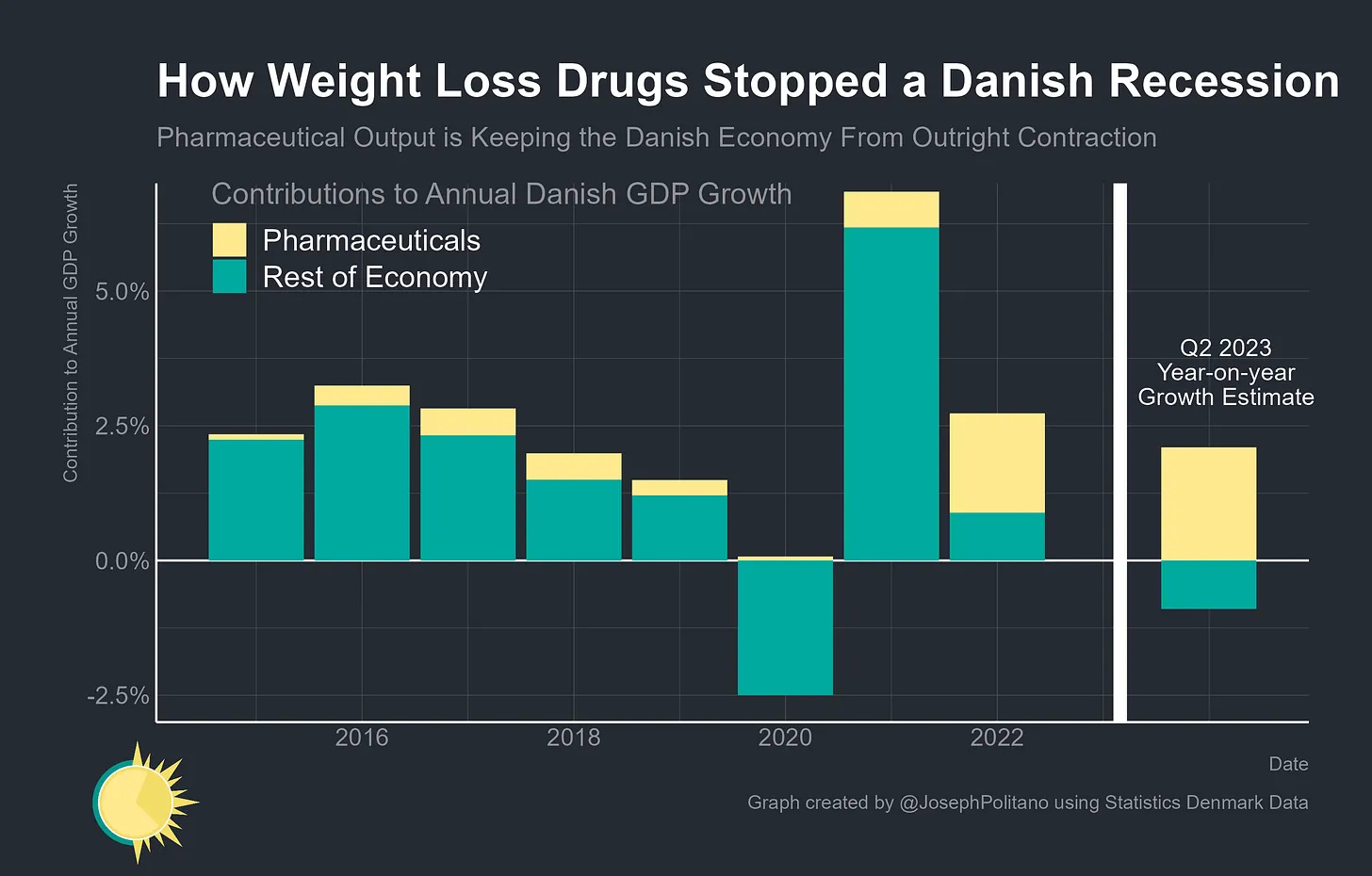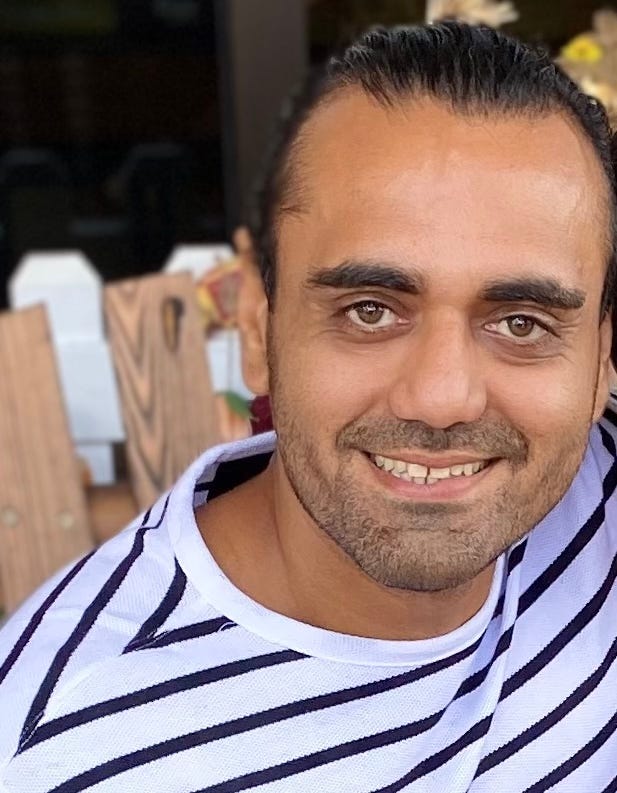🦉AW#21: Ozempic Mania - Miracle or Mistake? 4 Keys to a Happy, Vibrant Life.
Your guide to choosing or not choosing Ozempic
Actionable Wisdom Newsletter
By now, I am sure you have heard of Ozempic, or perhaps you are using it.
In either case, the information here is relevant to you.
My goal here is to provide a brief, uncomplicated list of considerations that will explain Ozempic/GLP-1 agonists and help you decide whether to use them.
What you will learn in this week’s edition:
Note: I will use Ozempic and GLP-1 agonist drugs alternatively. For the most part, they both mean the same thing.
Let’s begin.
What is Ozempic or other GLP-1 Agonists
You eat protein. Protein has amino acids. When amino acids bind, they create peptides.
Peptides are broken down with enzymes already in your body.
Ozempic is a pharmaceutical peptide, the same GLP-1 peptide that your thyroid produces naturally.
Potential Benefits of Ozempic/GLP-1 Agonist Drugs:
Metabolically compromised (anyone unhealthy) is generally GLP-1 deficient.
GLP-1 does the following in your body:
Suppresses appetite
Slows motility (the rate at which food passes through your gut), which makes you feel fuller for longer.
Helps your pancreas to secrete insulin at the right time
In some people, using a microdose of GLP-1 agonist drugs:
Help curb insulin sensitivity
Reduce brain fog
Reduce anxiety
Reduce pain (pain caused by neuro-inflammation like arthritis and an overactive immune system)
Provide blood pressure regulation
*0.25 milligrams is the average starting dose for Ozempic, which can be way higher for most people. A microdose is 1/5th of that.
Potential Risks of Ozempic:
The alarming drop in muscle mass: The weight loss from these drugs causes an alarming rate of muscle mass. You do not want to lose muscle mass dramatically. Use a DEXA scan to ensure you are not losing muscle mass. (Peter Attia). This is a BIG risk if you are not morbidly obese.
Watch this 16-minute video from the reputed Rhonda Patrick as she covers additional risks backed by scientific studies. - Is Ozempic a Miracle Drug for Weight Loss? - Rhonda Patrick
Your risk of getting thyroid cancer increases by 50%. But, weigh that against obesity. Because obesity itself increases the rate at which your body replicates cells, thereby increasing your chance of getting cancer. However, experts on Ozempic, like Johann Hari, suggest that if you have a history of thyroid cancer in your family, you should not take these drugs.
Eating disorders: Eating disorders are a conflict between your psychological self, which wants you to starve, and the part of you that wants to eat and stay alive. Drugs like Ozempic will enable the person suffering from an eating disorder to enhance malnutrition.
If your BMI is below 27, you shouldn’t even consider Ozempic. Another solution is to mandate that one can only get this drug from doctors trained in detecting eating disorders.
Once you stop taking the drug, you gain most of the weight back.
There is some concern in babies born while the mother was on Ozempic/similar drugs.
Expensive: In short, it’s a lifelong appetite-suppressing straight jacket; it is expensive <$800/month for life, and the weight comes back on if you stop taking it. Another concern is that most of the weight you lose is muscle, which is not great.
The risk of pancreatitis can increase by 900%
A cultural risk is that we are training our children that a pill can solve their bad lifestyle choices. Especially in a world where Big Pharma is paying millions of dollars to pediatric doctors to prescribe 6-year-old children to be on this drug for the rest of their lives.
The bottom line is there is NO FREE LUNCH.
Big companies are set to make trillions of dollars from these drugs. They are spending millions to create a narrative that suits them. Understand that this game is not always played by the rules, and sometimes, new rules are written.
Do your research and choose wisely. This decision is worth researching for 5 hours.
Parting thoughts/Conclusion:
Based on my current understanding, if a family member came to me for advice, I would say unless their BMI was over 35, they shouldn’t even consider it. Even then, if there is a history of throat cancer, these drugs are completely off the table. Not to forget that the weight comes back on if you stop taking the drug.
The biggest unknown for me is whether a super small microdose (1/10th or 1/4th of .25 mcg) can create a safer, gradual, positive change in the gut microbiome and inflammation and help overcome metabolic disorders without creating a dependency.
Time will tell. I hope medical practitioners can provide reliable clinical data to help make better, less risky decisions with more favorable outcomes.
What to do if you are confused and can’t decide
Listen to credible, unbiased experts on YouTube (I provided a list of some experts I trust below).
If you're going to try it, start with an end in mind.
Work with a medical professional who specializes in eating disorders and nutrition and has used this drug for at least 2 years clinically.
Create a plan with a definitive timeline for when you can wean off or come off the drug completely. This way, you are not creating a lifelong dependency or handicap. Instead, you're using the drug as a kickstart to a better lifestyle, habits, and behaviors.
You have heard this before - Follow the money.
Humans are driven by incentives. Ozempic has incented many people in high positions with a lot of money.
Ponder this for 5 minutes, and you will quickly realize that your long-term health and well-being aren't part of their consideration. So, do the responsible thing and think for yourself.
Hopefully the information here provided enough information to start forming your own critical, skeptical argument and opinion.
Take a deeper dive - Expert sources:
Dr. Tyna Moore - Naturopathic Dr. who believes super low dose Ozempic has helped with many ailments
Dr. Mindy Pelz - How Fasting could be an alternative to Ozempic
Both sides of the argument in one place - Dr. Mark Hyman's Podcast
Additional considerations:
40% of Americans are obese. Meanwhile, there are only 3% of Japanese that are obese. Why?
Ozempic alone is funding a whole nation's economy. Just imagine how strong these incentives are and what the incented humans might do for them.
This is how Ozempic is carrying a whole nation's economic future by being the biggest contributor to their national GDP.
Read more here:
4 Keys to a Happy, Vibrant Life : Ozempic isn’t the only solution
Humans craving well-being is not a new pursuit.
Modern society has spent decades researching the secret to high-quality, vibrant aging.
We have Centenarians across the world spilling beans and sharing their secrets. We have happiness experts like Arthur Brooks trotting the globe to distill the formula for a happy life.
What my Homer Simpson brain has gathered is the following key tenants to creating and maintaining well-being, both short-term and long-term: Eat, Move, Rest and Nurture

Eat a high-protein, whole-food diet.
Overly exclusionary diets like Carnivore can benefit a few, but not all. Instead, focus on the quality of your food. Eat nutritionally dense foods (natural, local, seasonal whole foods) and avoid empty calories by eating or drinking nutritionally bankrupt foods like processed foods or junk foods.
Eat 0.8 or 1 gram of protein per pound of body weight. If you weigh 200 lbs, eat close to 200 grams of protein in a day, ideally split around 3 meals.
Avoid snacking. Drink water instead.
Move Frequently
Exercise consistently and frequently. The healthiest cultures around the world have a culture of walking around. Get at least 10,000 steps a day. Avoid a sedentary lifestyle. If you have a desk job, take frequent movement breaks and take your work calls walking around.
Do 3 resistance training sessions of 30 minutes each every week.
Train your muscles at a slow tempo to avoid injury and maximize muscle growth.
Remember, movement signals your brain that your body is still required. Without this signal, you are inviting disease and pathology to erase you because you aren’t needed.
Rest and restore
After exerting yourself intentionally, it’s critical that you pay equal attention to restoration. Have a sleep regimen. Dim the lights an hour or 2 before bedtime. Do not put your phone in your bedroom. No bright lights.
Read a book, slow down, and aim to get 7-9 hours of deep sleep. ``
Nurture your psychology
Good nutrition and rest will nurture you physically. But you still need to nurture your emotional body.
Perhaps counterintuitive, emotional nutrition comes from nurturing the world around you and by being of service to others. Apply your unique gifts and talents to help others.
Contribute before you expect to get anything in return.
Trust me, you will get many folds in return.
Nurture deep relationships. Stop chasing online likes and follows from thousands. Find a handful of people who you can truly count on.
Build faith in something bigger than yourself. This can be God or a purpose bigger than you, i.e., helping the underprivileged in your neighborhood.
We live in a world that is superconnected but lonely. This is a slow death of your soul.
The only answer is a true, deep, and meaningful connection.
Implement: Take Action
This week, try to eat a protein-rich diet, do 3 resistance training sessions, and spend 30 minutes of quality time with someone you love.
I hope this was useful.
I am testing out slightly different newsletter formats to provide concise, useful information you can implement.
If you have any feedback, please DM me.
Much love,
PM








